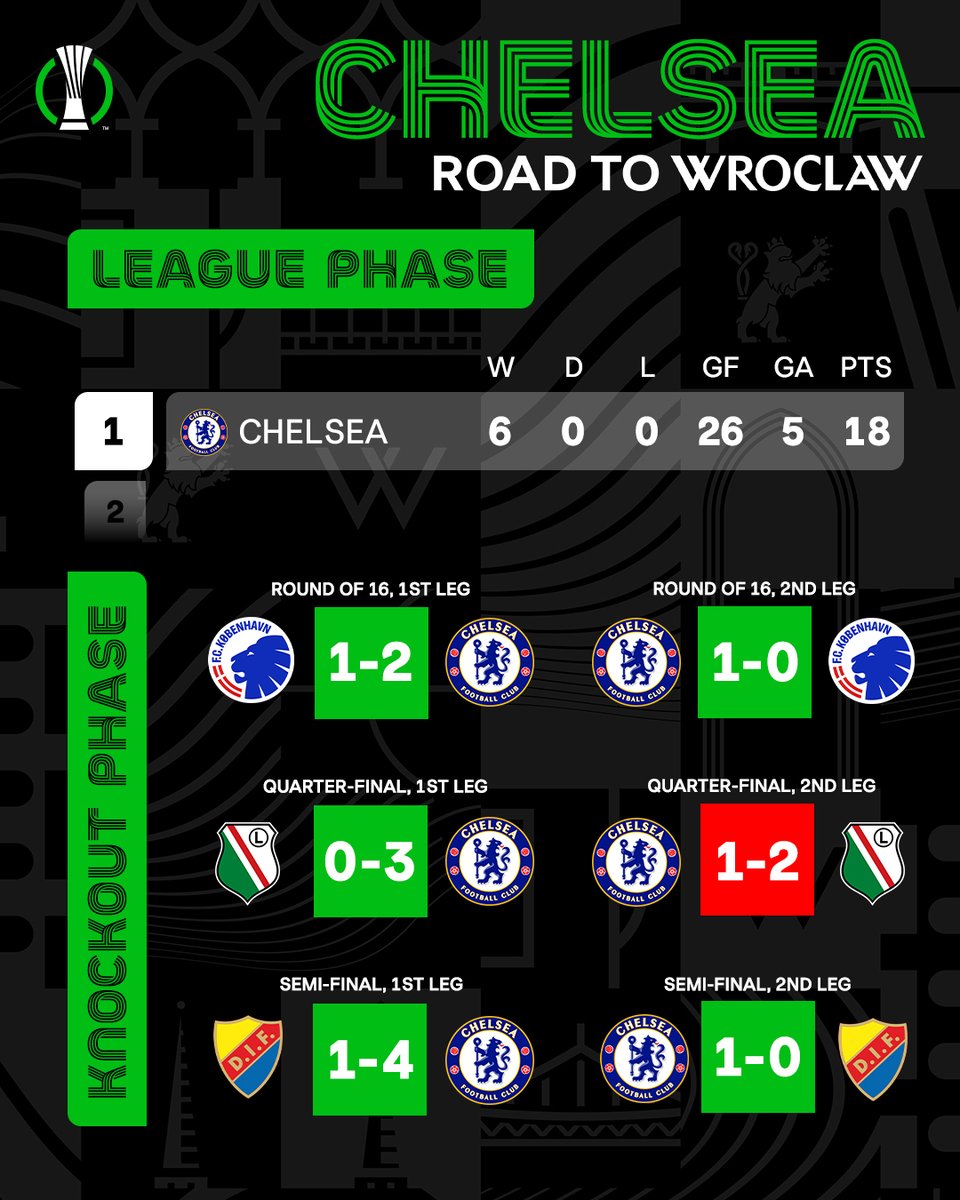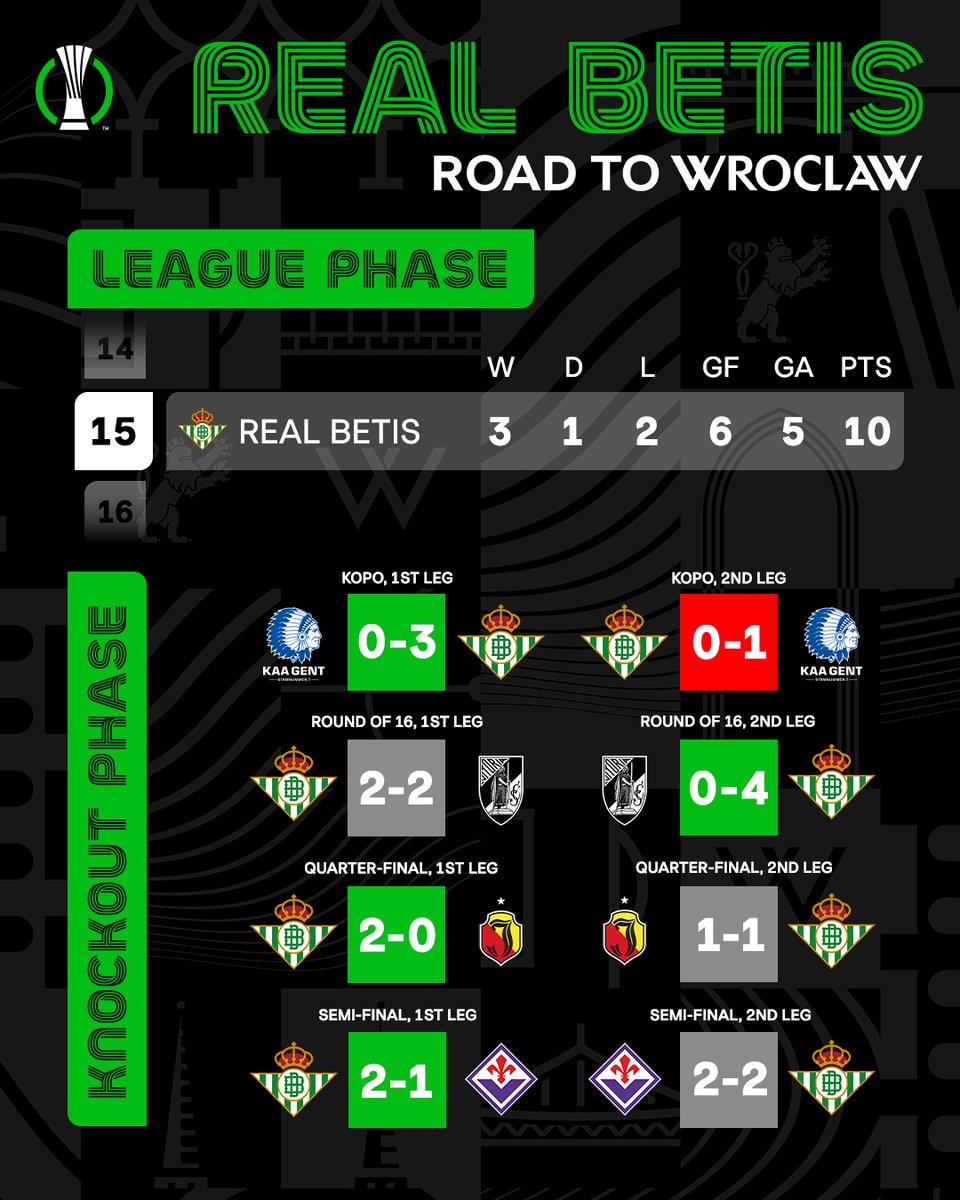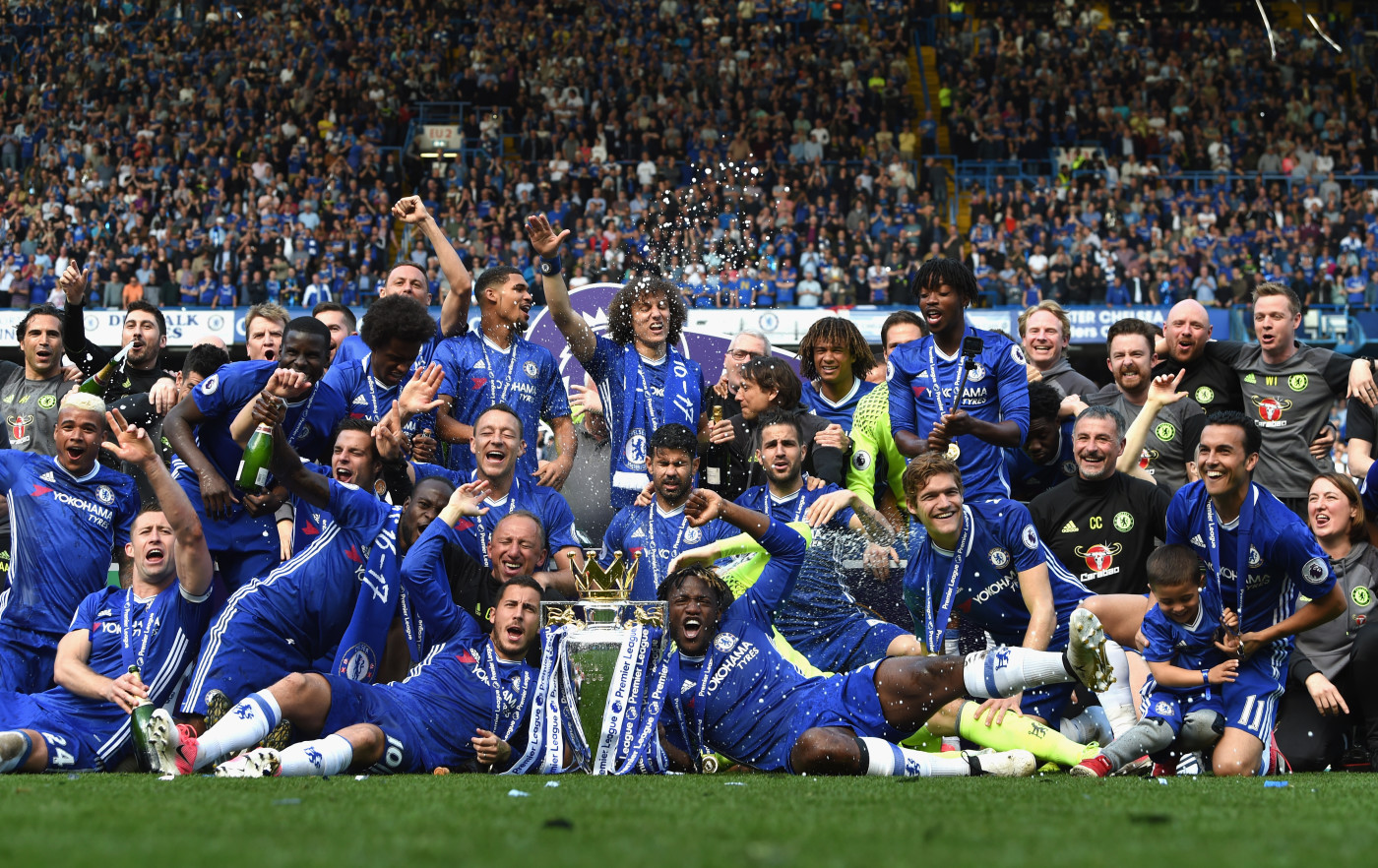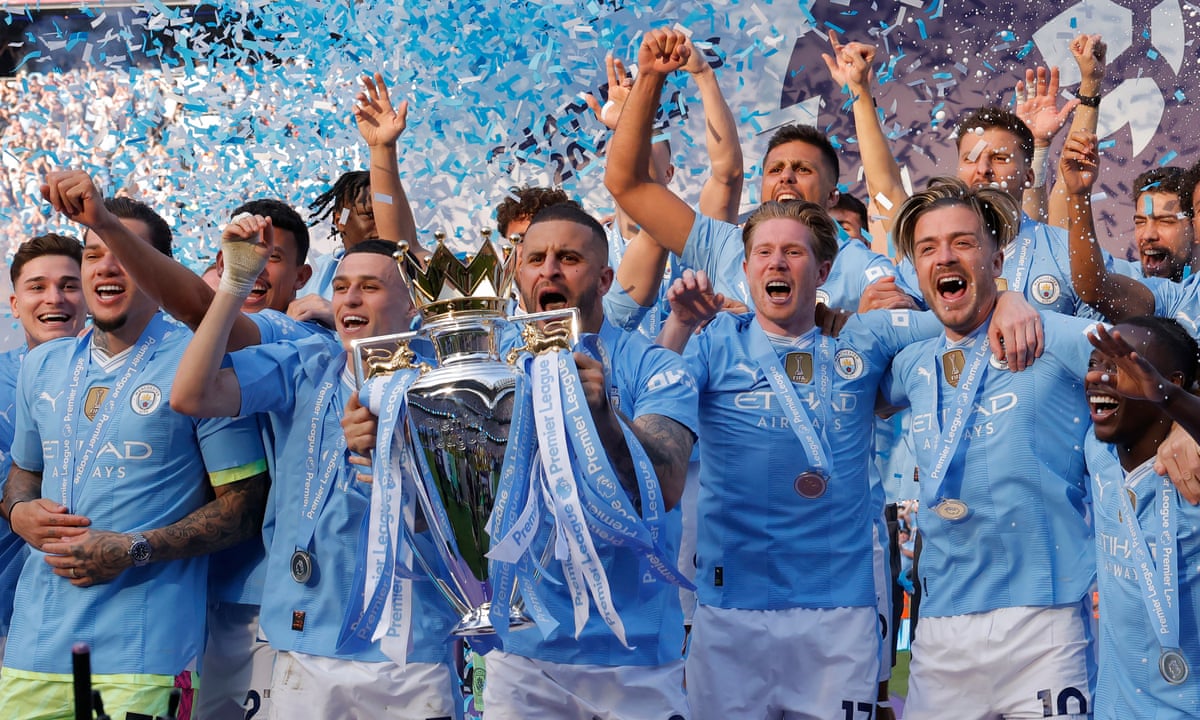Graham Potter, Chelsea manager? It would not have seemed possible a few years ago, but the in-vogue Brighton boss has been confirmed as the man to replace Thomas Tuchel at Stamford Bridge.
Chelsea have tied Graham Potter down to a five-year deal, having sacked Tuchel just seven matches into the new season.
With new Chelsea owner Todd Boehly evidently carrying on Roman Abramovich's hire-and-fire approach to head coaches, the jury was out on whether Potter should take the role.
But Potter was clearly keen on the move, and though the position comes with pros and cons, few would deny that the man who started his managerial journey in Sweden does not deserve this shot at coaching a Big Six side.
Chelsea, too, may see the value in appointing a manager whose style is not too dissimilar to Tuchel's despite the German's spell in charge ending in disappointing fashion.
What is the Potter way of football?
Potter has favoured a 3-4-2-1 formation since the backend of last season, in which time Brighton have lost the influential Marc Cucurella (ironically to Chelsea) and Yves Bissouma but also beaten Manchester United twice.
This formation relies on two defensive midfielders, in a double pivot, supporting the back three but also working in tandem with the other two midfielders in front of them, making for a tightknit quartet that are often encouraged to form a box and constantly be aware of each other's positioning.
That system allows for Potter's key duo, his wing-backs, to thrive, with a greater license to stay forward and kick-start Brighton's counter-attacks as opposed to forming a flat back five when defending.
There are points when the wing-backs essentially operate in the forward line, and this was seen in the opening-weekend win at Manchester United, with Pascal Gross (at left wing-back below) starting the counter that led to him scoring the second goal of their 2-1 win after Solly March's (right wing-back below) attempt was saved.
/sportzpoint/media/post_attachments/72c8f258525e6eb967e48820b0a44f18074dfd31995f895325d8fcfa17ccda17.webp)
Potter's aggressive wing-backs can often result in the back three becoming stretched, however, as was evident for Leicester's opening goal on Sunday, but when sitting back the double pivot is often there to plug the gaps and make the back line difficult to penetrate.
/sportzpoint/media/post_attachments/b306730c6e40cae97d64b2ff365a17c67c681e7c02f1d04fdcfda84eb11de6c3.webp)
All this does not mean Potter will stick with 3-4-2-1. He has shown a fluidity regarding formation over the years and has sometimes operated with a back four. The philosophy, however, often remains the same: defend as a unit, focus on positioning, play out from the back, and counter-attack quickly.
Progressive passing out from the back:
For all that Chelsea were relatively possession based under Thomas Tuchel, you would not have said that any of their central defenders were particularly progressive in their approach.
They did not typically have an approach that saw their central defenders taking responsibility for moving the ball through the thirds.
Instead, the Italian international midfielder Jorginho tended to take the role as the main ball progressor for Chelsea.
Under Graham Potter, however, this would likely change. Potter is very flexible from a tactical perspective although he does tend to prefer to play with a back three system as opposed to a back four.
We believe that this would be the case at Chelsea where he would have the players needed to make this system a success already at the club.
/sportzpoint/media/post_attachments/1c71bccecbbb1e90694b0dd72527e3d490f5ab772edf6ae90d85a3cd1e3b9c03.webp)
At Brighton the central defenders play an important role when it comes to building the attack with the likes of Adam Webster and, when he was still at the club, Ben White playing progressively with the ability to step out towards the midfield areas in possession of the ball and find ways to break a line with passes into advanced areas.
This summer saw Chelsea invest £34m in the signing of the Senegalese international central defender Kalidou Koulibaly from Napoli.
He is the type of central defender who would thrive under Potter's management with his willingness to be aggressive in possession and move the ball forward and through the thirds.
Indeed, while he was at Napoli he took the responsibility on a regular basis to move the ball forward and through lines.
/sportzpoint/media/post_attachments/530b2aa6177a9294e8e9916dd32f0bfca26da22b113c5d57a05b6c5e5034a6ea.webp)
With Thiago Silva less inclined to pass aggressively and new signing Wesley Fofana more comfortable in the defensive phase of the game, it is entirely likely that we would see Koulibaly take on an important role in the build-up.
Dynamic wingbacks:
One of the biggest criticisms of Tuchel at the start of this season was the way that the English international right-back Reece James was being used.
James, when at his best, is a real force down the right-hand side with a blend of technical skill and physicality that not many players can match.
At times this season, however, he has been used as a right-sided central defender in a role that does not necessarily meet his strengths.
/sportzpoint/media/post_attachments/0a76235d14fbea1a73004f84b490caa3f17984264269ec07d386e35e26d6a383.webp)
At Brighton one of the most striking aspects of Graham Potter's time has been his ability to get the most out of wingbacks.
Brighton's most recent game, the 5-2 demolition of Leicester City, is a case in point as they played with Solly March as the right wingback and Leandro Trossard as the left wingback.
Neither of these players are natural wingbacks but Potter trusts himself to be able to work on the training ground to teach players how to play in these areas in his system.
At Chelsea, he would immediately come into a situation where he would have two players ideally suited to his style of play with the ability to play as wingbacks in Reece James and Marc Cucurella, the Spanish international who has recently been signed by Chelsea from Brighton.
/sportzpoint/media/post_attachments/5be52695d274a7e44a6592b64828612c28bc1156b8e6fdfddf897a5a883b5cb0.webp)
James is a wingback who can control the entire right side of the pitch on his own and this creates the opportunity for the midfielders within the system to stay centrally and to look for opportunities to overload the centre of the pitch.
On the opposite side, Potter will be able to choose between Cucurella, who he already knows inside and out, and the England international Ben Chilwell.
The smart money would be on Potter turning to Cucurella, a player who played several different positions under Potter as the English coach changed the system seamlessly within matches, as his first choice.
Crucially the role of the wingbacks under Potter are designed to control entire sides of the pitch both in the attacking and defensive phases of the game.
This means that Potter can concentrate his resources in the central areas of the pitch.
Energy is king in the midfield:
With the main ball progression coming from the wide central defenders and the wingbacks controlling the wide areas we then see Brighton's central midfielders play in a dynamic all-purpose role.
Indeed, this season you could easily make the argument that the midfield unit at Brighton has been the key to their strong performances in the Premier League with Moises Caicedo, Enock Mwepu and Alexis Mac Allister all performing exceptionally well.
The key for the Brighton midfield and the way that Potter likes to play in these areas is that all players are capable of performing in all phases of the game.
/sportzpoint/media/post_attachments/6fef5c7346944637d3979c7bf377c7909ddcca04c709567572168989de05d163.webp)
They do not have midfield players that we would typically classify as only attacking or defensive midfielders and instead they rotate and cover ground across the central areas.
For us, this is the biggest challenge that Graham Potter would face when taking over this Chelsea squad.
Other than N'Golo Kante, who has significant injury issues, there are no midfielders at Chelsea who fit the profile of the Brighton midfield.
Jorginho is too static and Mateo Kovacic flatters to deceive. How would the Chelsea midfield look under Potter and how would it function?
Would the Englishman be able to pull off his preferred style of play with a midfield that does not function the way that he would want it to?
/sportzpoint/media/post_attachments/c2e1ca18a792035715883893cf384685ee58cd7153d1e570d5a476268008e7b6.webp)
If Graham Potter is not able to create a midfield structure with the players that Chelsea already have at the club then we may see Chelsea struggle to perform effectively going forward.
While at Brighton we see Potter typically look for his strikers to play high and tight against the opposition defender it is the role of the midfielders to then work up and down the centre and the channels of the pitch in order to fully connect all parts of the team.
Graham Potter and emotional intelligence
Graham Potter is not all about numbers and formations, though. He places a great importance on how "emotional intelligence" can get the best out of a squad as well.
"When I started to look further into the course around emotional intelligence and leadership, it seemed to be quite a powerful aspect to take into coaching," Potter explained to the Coaches' Voice.
"I'd had a bit of trial and error, but this was a way to just theorise some leadership concepts: self-awareness, empathy, responsibility, motivation, building relationships, are all things you need when you're coaching.
"As much as you need to know about football, you need to know about people as well, that can be the difference. How you can communicate as a team, how you can understand each other, big things in football and it's not just about the Xs and Os, the numbers, formations, drills, practices, it's about how you can get that team to function together, motivate individuals with that group to understand their role and others, and come together for a common cause."
This was echoed by one of his former players, with Brwa Nouri named captain under Potter at Swedish side Ostersund.
"He's not only a football coach. He's probably one of the best men I've ever met in my life," Nouri told ESPN.
"
"He is skilful in so many areas. You have to experience him yourself, but for me, he's incredible. And I feel so grateful. After what I've been through, how far down I'd been, I never thought I'd be able to achieve anything like this. It's hardly fair to put it into words."
Potter leaves 'no stone unturned'
And it is not just Potter's past players who are wedded to his ways. Both 31-year-old Danny Welbeck and 34-year-old Adam Lallana have been regular starters at Brighton this season, and have credited their former boss for his diligent approach to coaching.
"Every manager has their own way of doing things and he wants success and he wants to win," Welbeck told BBC Sport.
"If you look at the way the team is playing and how we are going into matches there is no stone left unturned on what he wants us to do out there on the pitch."
Lallana added: "Graham, from my experience with him, is a really deep thinker. Him and his staff do 12-hour days which you need to do if you want to be the best, you cannot leave any stone unturned.
"There are so many different dynamics to the team you need to look at. You've got a squad of 25 players, each of which are at a different stage in their career and life with different problems, but Graham and his team really do cover all bases."
Who could benefit at Chelsea?
/sportzpoint/media/post_attachments/869787252434a68f70ab6091fd056f20c56c54057658bf65d1f3cefab0c5bb30.webp)
One of the more immediate points made after Tuchel's sacking was the fact Chelsea got rid of him just days after Pierre-Emerick Aubameyang was signed to reunite with a coach he played under at Borussia Dortmund.
So is Aubameyang doomed under Graham Potter? Not necessarily.
Mason Mount would appear to be a perfect fit for Potter's system, and he could soon find himself operating closely with Sterling, who could tuck in as a No 10 as opposed to playing false nine or out wide.
Meanwhile, Conor Gallagher and Ruben Loftus-Cheek are versatile midfield options, while the jury is out on Kai Havertz, Hakim Ziyech and Christian Pulisic. Arguably Havertz would simply contend with Aubameyang and Armando Broja for the forward role, but the German could slot into attacking midfield as well – so long as he is prepared to track back.
The same could be said for Ziyech and Pulisic, although perhaps Potter would view them as wing-backs-in-making? Get ready to run, lads.
Potential starting XI under Potter: Mendy; Fofana, Silva, Cucurella; James, Kante, Kovacic, Chilwell; Mount, Sterling; Aubameyang.
Potter brought the best out of Welbeck at Brighton and does not always rely on his No 9 to rush back and defend, meaning Aubameyang could yet be suited to the role that Potter may present to him.
/sportzpoint/media/post_attachments/6d3bccd79fc5a5000efcb5cde49c7dfbb0ce051f11d5b5f3bd6c95796f9c2486.jpg)
The more pertinent question would be whether Graham Potter makes wing-backs out of wingers or full-backs. Reece James feels like an obvious choice for the right-sided wing-back, it is a role he has played under Tuchel, while on the left it could be Cucurella, Ben Chilwell, or even a more attacking-minded player.
Graham Potter in fact ended the 2021-22 season by playing Cucurella as the left-sided centre-back at Brighton, with Trossard or Solly March in front of him, and so the Spaniard could line up in that defensive position with Chilwell ahead of him at Chelsea.
That would leave Thiago Silva, Wesley Fofana, Kalidou Koulibaly and Cesar Azpilicueta vying for two roles, although their strength in depth makes rotation likely as well.
Beyond N'Golo Kante, Mateo Kovacic and Jorginho – a trio who rarely seem to be all fit at the same time – battling it out for the double-pivot roles, the greatest intrigue beyond the two wing-backs is what Potter's potential arrival would mean for Raheem Sterling.
Expect plenty of clever build-up from the back, the wingbacks being fully utilised and lots of energy needed in the middle of the park.
Hang on, that does sound very like Thomas Tuchel doesn't it?




/sportzpoint/media/media_files/yjePslk0N5qyYirt1zkT.png)
/sportzpoint/media/post_attachments/a0f96895aa7994f6d69573c3ab3af605db619b5e5f07c5c4e255b5f76e856c70.jpg)
/sportzpoint/media/post_attachments/3ac3cb81cb97a74d9a107271245089d57a0d6f120a6ed4bda1b9d3e325a1225c.jpeg)
/sportzpoint/media/post_attachments/wp-content/uploads/IMG_0716.jpg)
/sportzpoint/media/media_files/a6sOCZx8Pnr2HKonuYDW.jpeg)
/sportzpoint/media/post_attachments/788cf0b6c5393d7d36a156922e070a069477c1ce7e6ced242553068037330695.jpg)
/sportzpoint/media/post_attachments/52ad3cd24a1ec101734434ac6bb39e86e3c3abed1234dd87506070c0f6e7175b.jpg)
/sportzpoint/media/post_attachments/22388fc53ca802a7e694823395c38514d7e10cf0986619b377f549f8fe321976.jpg)
/sportzpoint/media/post_attachments/8b8bc56e43fc96b9713a8ceeef94ee044e1a0aeffb979286cdd5cbe8cd03d51c.jpeg)























